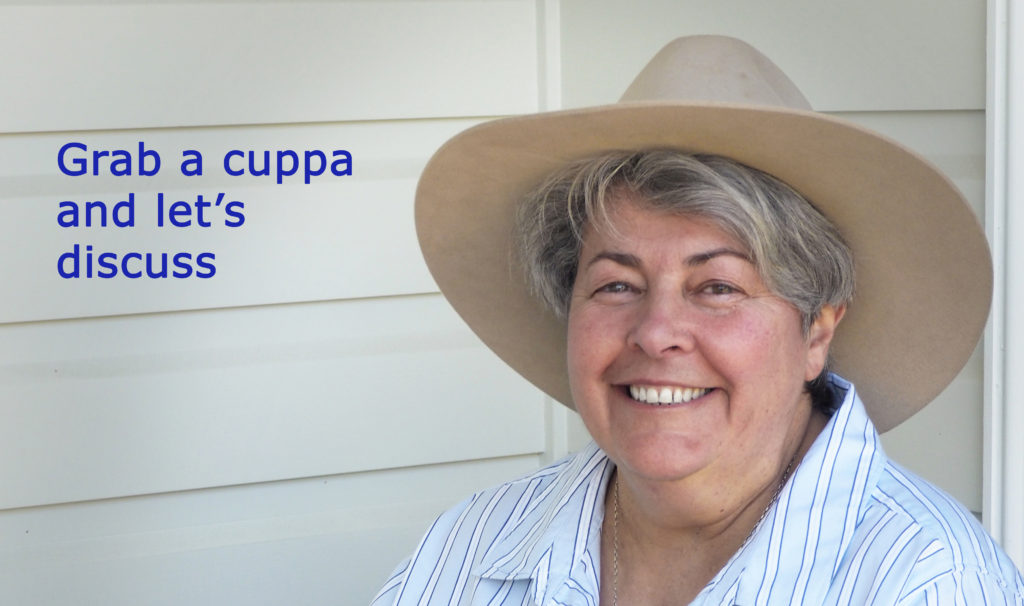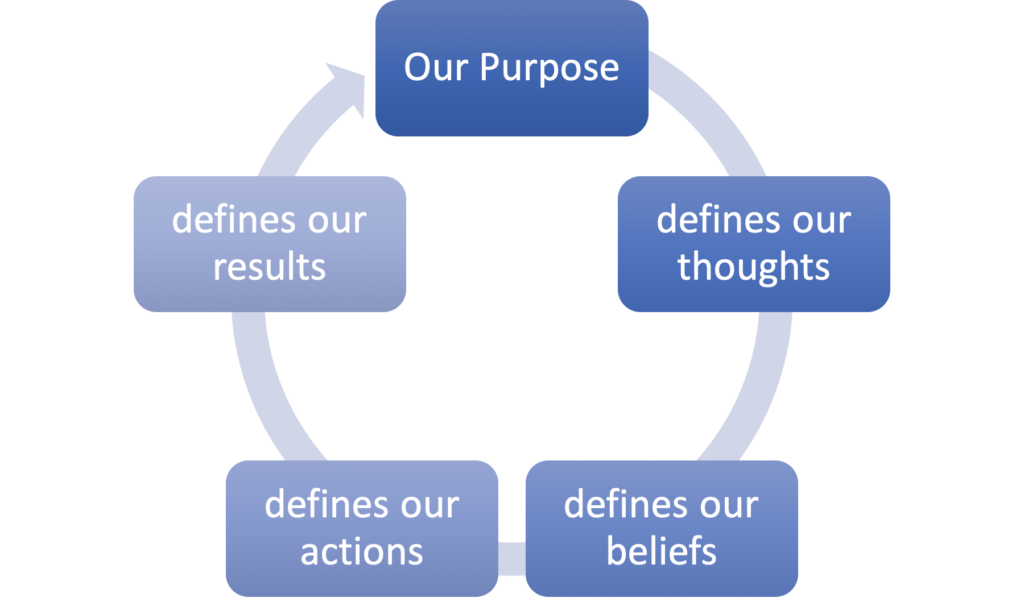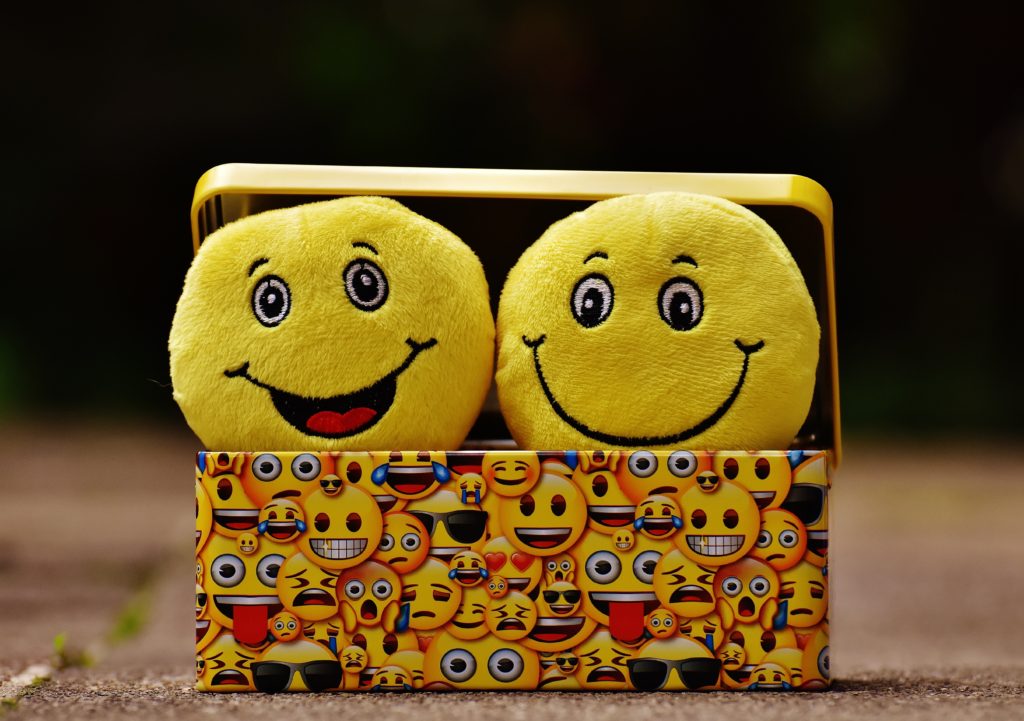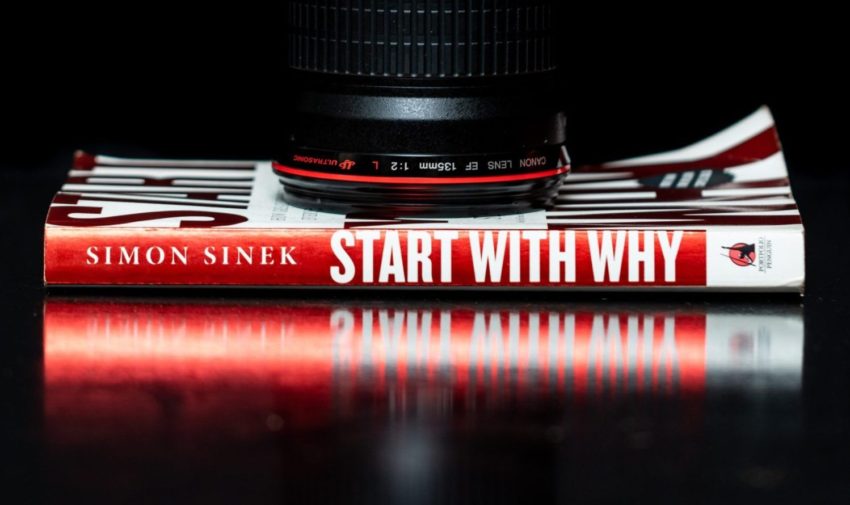- Part 1 – Does finding your Life Purpose still have relevance in this day and age?
- Part 2 – About our Life Purpose
- Part 3 – 7 Steps to Identify your Personal Values
- Part 4 – To Craft Your Purpose First Find Your Passion
- Part 5 – Finding your Passion and Building your Purpose Statement

Moving into 2020 I found myself wondering if “finding your life purpose” still had relevance, or is it a trend that can now be left behind?
In her post “Why is finding your purpose so important?”, Dr Kate Siner says “if we live an unconscious life, without purpose, life just happens to us”.
In other words:
- time will pass regardless, and
- our life will pass regardless, and
- we will have an impact on the world regardless.
Our purpose is the why that gets us up in the morning feeling motivated and excited for the day, and it keeps us moving forward through the most challenging of times. An individual’s why has been responsible for amazing feats of courage, resilience and achievement.
Our purpose creates meaning for us – a “framework of commitment” or a “personal code of honour” that we make to ourselves and to others. By applying this framework of commitment, we:
- create a sense of place. We know the environments, communities and activities we want to belong to.
- become empowered. It makes it easy for us to choose who and what we want to be involved with and understand why we will not involve ourselves in things that are not congruent with our purpose.
- ensure that our impact on those around us and the world more broadly is intentional and not haphazard.
The result of all of this is confidence and a strong sense of self.
Without purpose, we have nothing to influence our thoughts, beliefs and actions.
Don’t get me wrong, we will still set goals and achieve them without purpose or even with the wrong purpose. There are many successful individuals out there who “hate their life”. Why? Well, as Stephen Covey once said,
“If the ladder is not leaning against the right wall, every step we take just gets us to the wrong place faster.”
Our life will happen. We will have thoughts which will inform our beliefs. We will take actions, we will achieve results. But at the end, will the ladder we have been climbing lead us to where we want to be, and how would we even know?
Defining our life purpose is the piece of work that ensures that we lean our ladder against the right wall.

It is the critical first step in building our thriving life.
To live with intention or not – your choice
Living a life with a purpose means you live your life intentionally.
Not being considerate or conscious of our impact in life is the risk we take when we live our life unintentionally.
The person who gets behind the wheel of their car when they are drunk and accidentally kills someone had no intention of doing that when they set out to go to the bar. But because they lived their life unintentionally the thought that they were ready to go home coupled with their belief that they “were okay to drive” was not tested against their framework of commitment and this led to the action of them driving, which in turn resulted in the death of another person.
Their life lived unintentionally still had an impact, not only on others but on themselves as well.
Now let us imagine that the same person had done the work and had a purpose which they defined as something like “act responsibly” or even “stay out of trouble”. Applying this as their framework of commitment, what actions might they have taken knowing they were going out for a big night? They might have simply left their car at home and caught a taxi or public transport. They might have driven to the event and given their keys to the barman asking him to hold them and to call them a cab when they wanted to go home. They might have organised for their partner or house mate or friend to drop them off and pick them up when they were ready. Any one of these actions, taken intentionally, would have produced a different impact.
Simplistic I know, but it might be that it really is that simple.

Purpose – What is it?
Purpose – (noun) – “the reason for which something is done or created or for which something exits”
Let us say your purpose is to “brighten the world one smile at a time”. When thinking about this purpose, this framework of commitment, what thoughts would you have, what beliefs would you hold, what actions would you take in pursuit of that purpose?
You might make a deliberate effort to make eye contact with people in your town as you walk by and smile at them. We already know how contagious a smile is and how hard it is to remain in a slump when you smile. What if your smile was enough to turn that person’s mind away from their desperation for just a moment. What might they do differently if they are lifted out of that desperation for just that moment? What about the old man sitting on the park bench who receives your smile? It might take him back to the day when he asked the love of his life to marry him and she said yes and for a moment he can bask in the warmth and joy of that memory and feel young again.

Are there other benefits to having a Life Purpose?
There may also be important benefits when considering our health and wellbeing.
Potential health benefits from living a life with purpose have been defined as:
- protection against the onset of Alzheimer’s,
- longer life expectancy,
- higher levels of resilience and therefore better coping abilities.
A study by Dr Patricia Boyle from the Rush Alzheimer’s Disease Center found that people without a sense of purpose were about 2.5 times more likely to get Alzheimer’s then those with a strong sense of purpose.
Dan Buettner in his study “Blue Zones” found that a strong sense of purpose was one of the factors identified in most of the centenarians he interviewed in these communities.
The Sense of Life Worth Living (Ikigai) and Mortality in Japan: Ohsaki Study 2008 was a study of over 70,000 Japanese that found that those who had a strong connection to their ikigai tended to live longer than those that didn’t.
Ikigai is a Japanese word meaning ‘reason for being’. The principle behind the term is ‘what I live for’, or ‘what makes living worthwhile’. Ikigai is therefore a philosophy of purpose.
Psychologist Stephanie Hooker, Ph.D., M.P.H., of the University of Minnesota found through her studies that those with a strong sense of purpose took active steps to maintain their health and wellbeing. “They’ve got this ultimate purpose that they’re trying to achieve, and health is the foundation for being able to do that” she said.
If your purpose defines your thoughts, beliefs and actions then your ability to appraise situations and make “the best of it” is higher. In his book Resilience, author Andrew Zolli describes people with a strong sense of purpose as being able to “cognitively reappraise situations and regulate emotions, turning life’s proverbial lemons into lemonade.”
Ed Diener’s research on the science of wellbeing would also seem to support this where he found that people with a strong sense of purpose were better able to handle the ups and downs of life.
Purpose builds long term resilience. We will still be faced with the same traffic snarls, packed commuter trains, tight deadlines, however our ability to maintain our perspective means things don’t get blown out of proportion and overall we cope better.

Closing thoughts
Purpose allows us to be authentic and true to ourselves. It is our anchor when there is nothing but turmoil about us. It frames our personal commitments.
As Gordan A. Eadie said in 1945, “If they don’t stand for something they will fall for anything”
In my next post, I will explore some techniques about how we might identify and define our purpose.
For some of us we will have a very specific purpose and for others we may find that the wisdom of Mahatma Gandhi is what we need:
“The main purpose of life is to live rightly, think rightly, act rightly.”
It seems to me that defining your purpose may be even more relevant now than ever before. Have you defined your purpose? Let me know in the comments below. I would love to hear your story.
Available below is a link to an eBook on this series.
Take care and talk soon
Thrive; don’t just Survive with Janette
